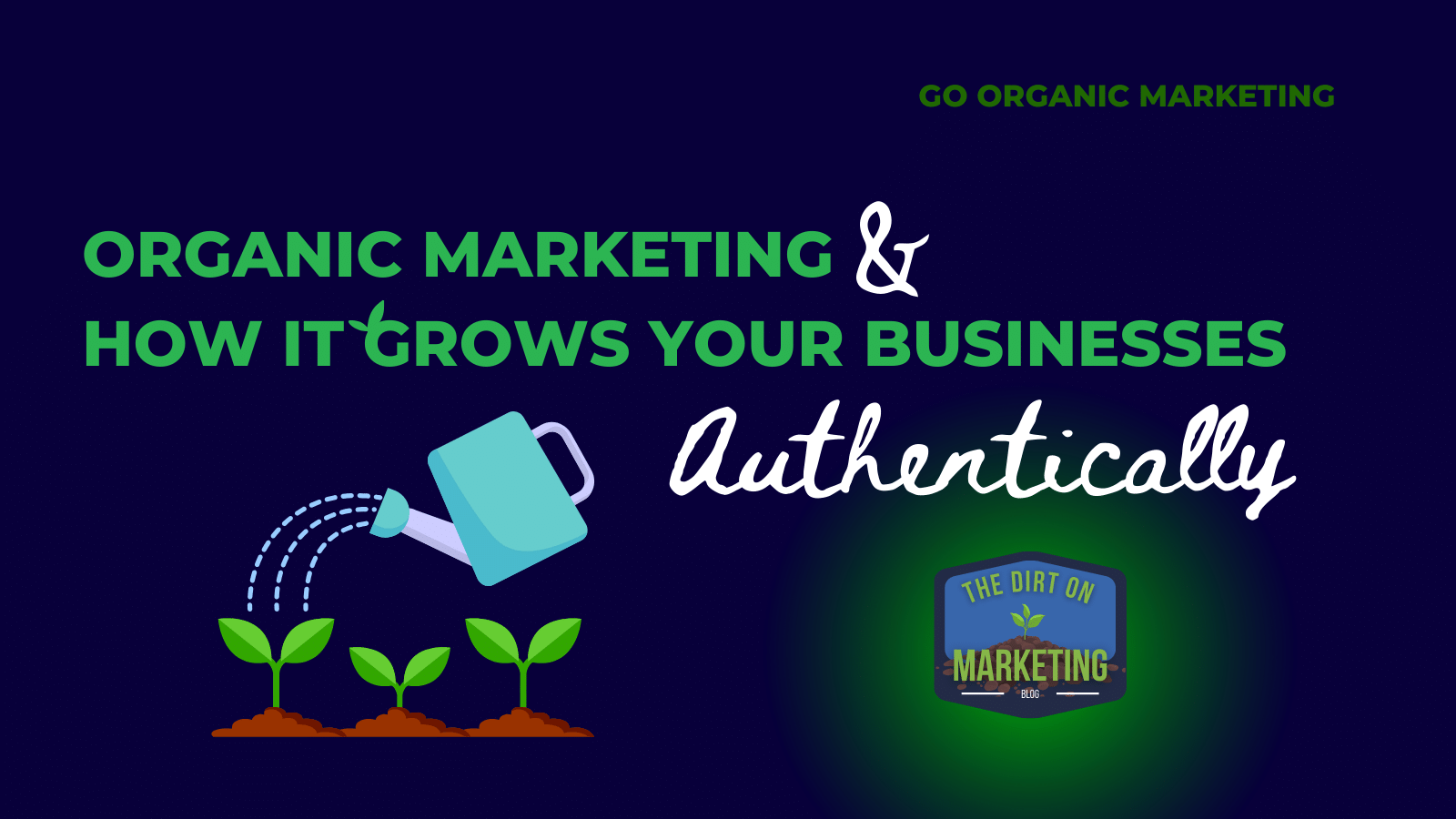Discover effective methods to organically grow your business and achieve long-term success.
Ad-fatigue and diminishing attention spans have become harsh realities for businesses in today's oversaturated marketing landscape. Traditional advertising, with its disruptive nature and reliance on paid promotions, often falls short in capturing genuine interest. Organic marketing offers a refreshing alternative by earning attention naturally through value-driven content, authentic social media engagement, and the cultivation of unwavering customer loyalty. But what exactly does "organic" entail?
Simply put, organic marketing focuses on earning attention naturally versus buying ads. The goal is to provide so much value through things like content, social media engagement, and influencer partnerships that you organically build awareness and trust.
If done right, organic marketing allows you to:
- Become a Thought Leader: Consistently sharing expertise through detailed blogs, videos, and visual guides helps you become a trusted authority. Outdoor gear company REI exemplifies this approach, creating localized content and comprehensive guides on topics like camping tips and outdoor adventures. As a result, they have secured top search rankings and cultivated a loyal following of outdoor enthusiasts who turn to them for expert advice and recommendations.
- Strengthen Connections: Social media provides a space to have genuine interactions with your audience by responding to questions and feedback. Software company HubSpot leverages this opportunity by actively engaging with customers in their dedicated Facebook group, promptly addressing questions, concerns, and feedback. This level of responsiveness and transparency strengthens customer relationships and fosters a sense of community around the brand.
- Partner with Influencers: The right influencer collaborations add credibility and can greatly expand your reach to new audiences. For instance, a home goods shop might collaborate with micro-influencers on Instagram, commissioning styled product photos and sponsored posts, effectively expanding their reach and building brand awareness.
- Build Loyalty: Referral programs, loyalty perks, and personalized gifts help show customers you value them and incentivizing repeat business. Offering existing customers an account credit for referring new customers creates a virtuous cycle of customer acquisition and retention.
- Increase Discoverability: Optimizing website content for relevant SEO keywords makes you easy to find and drives organic traffic. By strategically incorporating high-value search terms into your content, you can make it easier for your target audience to discover your business organically through search engines. Imagine you're a passionate home baker launching a new blog – by crafting detailed guides around popular searches like "fluffy cupcake recipes" or "baking tips for beginners," you're more likely to appear in the top results when someone queries those terms, instantly expanding your reach to potential readers and customers.
While organic marketing strategies may require more time and effort than buying ads, the rewards are long-lasting and impactful. The key is consistently providing content and engagement tailored specifically to your audience's needs. A common mistake is treating organic marketing as an afterthought. For success, integrate it into your overall strategy and build a marketing system to consistently provide value and engagement to your customers across the entire customer lifecycle.
At the end of the day, focusing on organic gives you full ownership of your audience data and enables a more cost-effective path to growth, particularly for small businesses and started up limited marketing budgets. By taking the time to nurture authentic connections, you build a loyal community that lasts.
How can a small business with a limited budget effectively implement organic marketing strategies?
How long does it take to build a business organically?
The timeline for building a successful business organically can vary significantly depending on factors such as your industry, competition, target audience, and the consistency of your marketing efforts. However, it's crucial to understand that organic growth is rarely an overnight phenomenon – it's a marathon, not a sprint.
Expect to invest substantial time and effort into creating high-quality, audience-centric content, actively engaging with your community, and optimizing your online presence before witnessing tangible results. It's not uncommon for businesses to dedicate 6-12 months, or even longer, to consistently executing organic marketing strategies before experiencing significant traction. However, the benefit of those efforts are long-lasting.
For some businesses, particularly those operating in niche markets or industries with lower competition, the organic growth trajectory may be relatively faster. On the other hand, companies in highly saturated markets or those targeting broad audiences may experience a more gradual buildup.
Businesses with dedicated resources and a comprehensive organic marketing strategy tend to see results more quickly.
Can organic marketing strategies replace traditional advertising altogether?
Organic marketing strategies should not be seen as a complete replacement for traditional advertising but rather a complementary approach. While organic tactics can be highly effective in building brand awareness, fostering customer loyalty, and driving long-term growth, they may not always be sufficient for achieving specific short-term goals or reaching new audiences.
A well-rounded marketing strategy often incorporates both organic and targeted paid advertising campaigns to maximize reach and impact. The key is to strike the right balance based on your business objectives and allocate resources accordingly.
.png?width=200&height=100&name=Go-Organic-Marketing-Logo-Horizontal%20(1).png)




%20(2).png?width=150&height=100&name=DARKSBTutors-Logo%20(300%20%C3%97%20300%20px)%20(2).png)
Comments Section